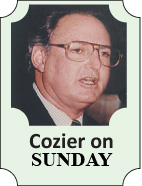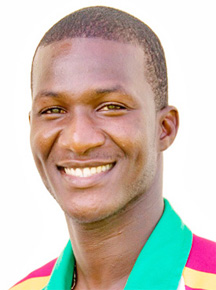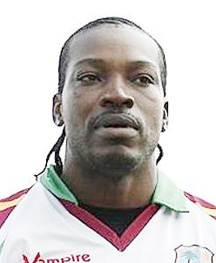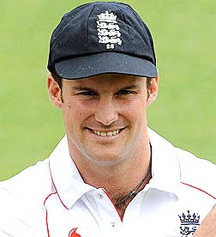Andrew Strauss offered one reason for his resignation as England’s long-serving captain last week.
No, he stressed, it was nothing to do with South Africans – either Kevin Pietersen and his infamous tweets or Graeme Smith’s men who had taken the No.1 ranking away from his team just a few days earlier. The rationale was straightforward.
“For a captain to perform his role properly it’s important you’re not a passenger but also that people aren’t speculating as to whether you should be in the side or not.” Full stop.

For 100 Tests overall, he was the solid left-hander at the top of the order, accumulating 21 hundreds and a respectable average of 40.91.
Yet, while he had not become a “passenger” (as recently as May he reeled off successive Test hundreds against the West Indies), he was troubled by his form over the past year or so and by the doubts of media and public over whether he any longer merited his place.
Given such insecurity, he packed it in, aged 35.
Strauss’ comment matches those that have swirled around the head of Darren Sammy ever since he was appointed West Indies captain in October 2010.

Michael Holding reflected a widely held view, stating that the board want Sammy as captain “irrespective of whether it’s good for the team balance or not.”
“West Indies cannot afford to carry anyone while they are struggling in Test matches,” was his take on the issue.
Mike Atherton, the former England captain, said during the series in England in May and June that Sammy “presents a conundrum.”
“He is clearly a wholehearted player, respected within his dressing room…but batting at No.8 and coming on second change, he is not quite good enough as either batsman or bowler to command a place in the team,” he added.
All of which is indisputably correct.
Sammy averages 22.2 with the bat and pays 34.07 runs for each of his 71 wickets in 29 Tests. Even though his batting has gradually improved (he scored his first Test hundred against England at Trent Bridge in May), his bowling remains steady but lacking bite.
Indeed, his record is very similar to what it was when he came to the post in October 2010 with the background of just eight sporadic Tests. He was obviously elevated for his perceived leadership traits rather than his cricket.

After Chris Gayle, the incumbent, and Dwayne Bravo, his vice-captain, chose not to sign retainer contracts and the lure of the Indian Premier League (IPL) and other Twenty20 leagues loomed as a threat, the board placed its faith in the combination of Sammy and new coach Ottis Gibson to stabilize the situation.
Two captains of earlier times had been chosen on similar grounds.
Mike Brearley, captain of Cambridge University and then Middlesex but a modest opening batsman, led England teams in the late 1970s when the main players were with Kerry Packer’s World Series Cricket.
In 1981, after WSC ended, he was recalled to the captaincy after two Tests of a home Ashes series, replacing Ian Botham who had struggled with the leadership and his own form.
Botham immediately regained his magic touch with bat and ball under Brearley’s astute guidance, Bob Willis scattered Australian wickets with his pace and England won the last three Tests for a 3-1 triumph. Brearley averaged just 17.62 in the series but his leadership is set alongside Botham’s revival and Willis’ bowling as major influences in the turnaround.
He might have been a graduate from Cambridge; in the words of Australian fast bowler Rodney Hogg, “he had a degree in people.”
In the mid-1990s, during a turbulent period in New Zealand cricket involving pot-smoking by some team members on a tour of South Africa and general unruliness, wicket-keeper Lee Germon was brought in by the board as captain, joining coach Glenn Turner, their high-scoring opener of two decades earlier.
Their goal, it was reported, was to “make significant changes to the culture of the New Zealand team”. There was, it is said, “opposition from some high profile players”, a situation verified on the Kiwis’ 1996 tour of the Caribbean when key all-rounder Chris Cairns and wicket-keeper/batsman Adam Parore withdrew claiming injuries.

Germon lasted only 12 Tests in which there was a solitary victory. He averaged of 21.11, scoring one half-century, before giving way to Stephen Fleming, who became New Zealand’s longest serving captain and highest scorer in Tests.
Sammy’s history at the helm is distinctly more Germon’s than Brearley’s. His mission has been compromised as much by the points made by Holding, Atherton and others as by the blundering of the West Indies Cricket Board (WICB).
The prolonged row with Gayle, the unavailability of IPL players for the Test series against Australia and England and Ramnaresh Sarwan’s departure in a huff to county cricket weakened the team and made Sammy’s job all the more difficult.
The effect of Gayle’s return at the end of his saga and the presence of Sunil Narine for the entire home series against New Zealand was evident in the results (2-0 in Twenty20s, 4-1 in ODIs, 2-0 in Tests) not achieved since the West Indies’ heyday quarter-century earlier. So what next for captain Sammy?
Like Strauss, he might have occasionally wondered whether he was “a passenger” or worried about the conjecture over his merits as a player, but Sammy hasn’t shown it. He has, indeed, been widely lauded for the way he has handled himself and the order he, and Gibson, have brought.
Yet the reality is that the balance of the team would be undeniably stronger with a third, authentic fast bowler (several candidates have recently emerged) or, in given circumstances, another specialist spinner (Shane Shillingford, for instance) rather than Sammy’s mild medium-pace.
After the New Zealand results, he can expect to be retained, as he has been for the coming World Twenty20 in Sri Lanka and probably for the tour of Bangladesh that follows. But his post can hardly be in perpetuity.
The problem is that, all along, the WICB has not prepared anyone to take over, whenever that might be. Nor have the territories helped in the process.
There has been a sequence of vice-captains (Dwayne Bravo, Carlton Baugh, Kirk Edwards, Brendan Nash, Denesh Ramdin) and ‘A’ team captains (Travis Dowlin, Devon Smith, Dave Bernard, Veerasammy Permaul). None appears likely to eventually be long-term leader of the West Indies.
It is high time for a young player to be identified. He would require guidance and support and should be made permanent vice-captain, no constant chopping and changing, perhaps even given the experience of skippering the ODI team, as England did with Alistair Cook, Australia with Michael Clarke and South Africa are now doing with AB deVilliers.
It is a responsibility that Darren Bravo, above the others, should now be ready for.





